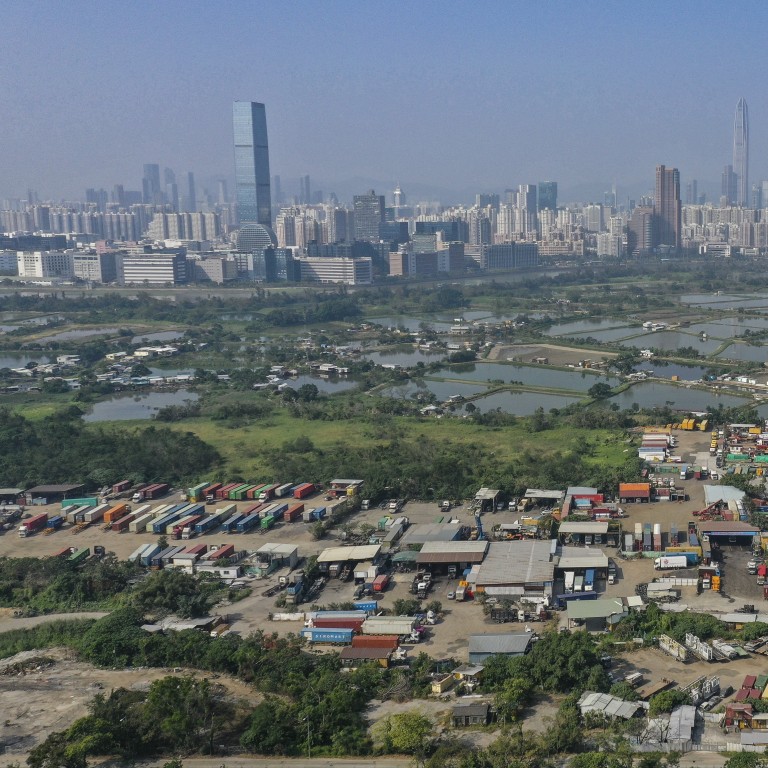
Combination of Lands Resumption Ordinance, protests will adversely affect Hong Kong developers, analyst says
- Some of Hong Kong’s biggest private developers hold about 100 million sq ft in farmland, one of the easiest sources of new plots
- Henderson Land, city’s second-biggest developer, has the largest holding of 45 million sq ft
Hong Kong, the world’s least affordable housing market, must find ways to provide cheaper housing amid anti-government protests that have now lasted over three months.
Use of the Lands Resumption Ordinance, which allows the city’s government to take back private land for an established public purpose, has been touted in some quarters. As it happens, some of Hong Kong’s biggest private developers hold about 100 million sq ft in farmland, one of the easiest sources of new land in the city.
In a report released last week, Bank of America Merrill Lynch points out Sun Hung Kai Properties, Hong Kong’s biggest developer, had 30 million sq ft of farmland at the end of 2018. Henderson Land Development, the second-biggest, had the largest holding of 45 million sq ft, while CK Asset Holding and New World Development, both in the top 10, had farmland holdings of 9 million sq ft and 16 million sq ft, respectively.
The law has been used before to free up land. Now, as protests have put a spotlight on the lack of affordable housing, the possibility of using it has resurfaced.
If the government succeeded in taking over land of private developers while the protests continue, it would hurt their share prices, said Louis Tse Ming-kwong, managing director of VC Asset Management.
“A combination of the government’s plan to acquire developers’ farmland and the social unrest will have a profound [negative] impact on the share prices of property developers.
Hong Kong to sell its biggest, priciest plot of land ever
“The acquisition of their farmland will affect them, and the social unrest will affect them,” Tse said.
Developers that own a lot of farmland, such as Henderson Land and Sun Hung Kai Property, will need to negotiate with the government, he said. “Their finished projects, which were not built on farmland and are about to be launched, will be affected by the economy and the social unrest,” he added.
Hong Kong has yet to identify land for 67,000 public housing units to meet its 10-year supply target, according to the Bank of America Merrill Lynch report. And if its government were to enact the ordinance, the developers should get a maximum of HK$5 billion (US$639.3 million) to HK$7 billion.
Hong Kong developers urge government to defer roll out of vacancy tax
The allocation of all 67,000 units to public rental housing would also reduce the waiting period for such accommodation to three years from the 5.4 years currently.
“The [use of the Lands Resumption Ordinance] may not have too big of an impact on the developers, as they have at least tens of millions of sq ft of land in their land reserves,” said Gordon Tsui Luen-on, managing director of investment company Hantec Pacific. “It will not be a big problem if the government acquires property developers’ farmland in the short term, as developers will continue to purchase new plots of land,” he said.
According to the Bank of America Merrill Lynch report, the implications of land resumption will depend on the type of housing to be built – public vs subsidised for sale. If land is acquired by the government for public rental housing only, the long-term implication for developers will be neutral, as the renters are not in their target buyer segment. If the government also builds subsidised for sale housing, this will have negative implications for the developers.
‘Unwise policies’ fuelled protests in Hong Kong, property tycoon says
Successful land resumption, however, will be a positive for developers’ near-term earnings as farmland value will be realised earlier, the report said.
The buzz around the Lands Resumption Ordinance follows a call by the Democratic Alliance for the Betterment and Progress of Hong Kong, the city’s largest pro-Beijing party, which on Wednesday said the government should seize land owned by private developers and use it for public housing.
Its call was echoed by mainland Chinese state media on Friday, which highlighted Hong Kong’s unaffordable and inadequate housing as a cause of the ongoing protests. It also urged the city’s big developers to “show their sincerity” and help the government find a way out of the crisis.
Meanwhile, MTR Corporation said on Monday it will invite developers to submit expressions of intent, which precedes the submission of tenders, for the development of property above Wong Chuk Hang Station. The site can yield a maximum residential gross floor area of 59,300 square metres, enough for 800 residential units.

